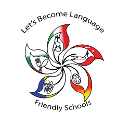The project is aimed to develop general language skills of the students of four partner schools from Turkey (coordinator), Romania, Italy,Spain,Bulgaria improve the effectiveness of foreign language teaching in all the partner organisations. Our schools have been concerned about foreign language teaching effectiveness for years. We offer our students enrichment and remedial classes, we as teachers use ICT to some extent, organise different kinds of competitions, offer two foreign languages and have classes with extra English lessons in the curriculum. However, the European and national studies, as well as results of the national exams, show some weaknesses of our efforts. Language is the roadmap of a culture. It tells you where its people come from and where they are going.Indeed, when you help your students grasp a new language, you give them what they need to have an enriched, globalized mindset.
According to the results of the European Survey of Language Competences, 2015, where the English language is considered to be the first targetforeign language, students from countries such as Turkey, Italy, Romania, Spain, Bulgariastill achieve one the poorest results in reading, writing and listening (speaking was not tested). Among others, the following factors are analised in the survey: early language learning, informal language learning opportunities, diversity and order of foreign languages offered, use of ICT, intercultural exchanges, staff from other language communities and foreign language teaching approach. They all show direct correlation with the effectiveness of foreign language teaching in schools.
Having in mind the conclusions from the survey, we want to increase the effectiveness of our teaching. In order to achieve it, we are planning to make our teaching innovative and more appealing to our students, as well as make the environment in which they live and learn more language-friendly. Doing it by means of an international cooperation, we intend to create opportunities for informal language learning and intercultural exchanges, which are important factors in a foreign language acquisition. We also want to involve all families in the learning process, which will happen thanks to hosting of the foreign students in their homes.
Working in an international environment we want to focus on an important aspect of the language and culture which is PROVERBS and SAYINGS in each of the national languages, which will be a good opportunity for cultural exchange. It will also introduce an aspect of multilingual learning into our project. To make it more appealing to our teenage students, we will connect it to the topics that really interest young people, such as DANCE, DRAMA, MUSICSPORTS and CUISINES By project activities we want to reach all the students in our schools. Not only those who are eager to participate in any extra activities, take private English lessons and travel abroad with their families, but those who are less motivated and come from less advantaged backgroundstoo. Thus, activities for all the classes will be planned, including group work within their regular English lessons, using ICT as a routine, enabling the students to have live contacts with other English language speakers from all over Europe.
We intend to establish new routines and give special attention to English language teaching, hoping that the project "Let's Become Language-Friendly Schools!" will make the English language visible and alive in our schools, even long after the project has finished.
On top of the main objective, which is developing language skills of our students, we also aim to:
- Strengthen students' social skills such as group working, decision making, mediating skills, planning, organising, etc.
- Exchange experiences with teachers from other schools to find new solutions to foreign language teaching problems.
- Learn about different European countries and become tolerant towards other nation's values and culture and at the same time increase the awareness of students' cultural identity.
- Make the learners open to other than English foreign languages.
- Improve students' command of communication tools and ICT.
- Introduce our students to self-assessment techniques.
- Buildup our students' confidence in their ability to function in multinational environment.

